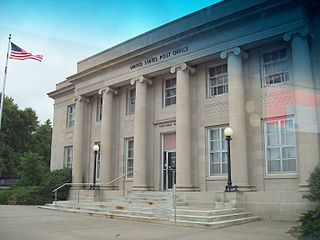
Concordia is a city in and the county seat of Cloud County, Kansas, United States. It is located along the Republican River in the Smoky Hills region of the Great Plains in North Central Kansas. As of the 2020 census, the population of the city was 5,111. Concordia is home of the Cloud County Community College and the Nazareth Convent and Academy.

Lexington is a city in, and the county seat of, Lafayette County, Missouri, United States. The population was 4,726 at the 2010 census. Located in western Missouri, Lexington lies approximately 40 miles (64 km) east of Kansas City and is part of the Kansas City metropolitan area. It is the home of the Battle of Lexington State Historic Site, and of the former Wentworth Military Academy and College, which operated from 1880 to 2017.
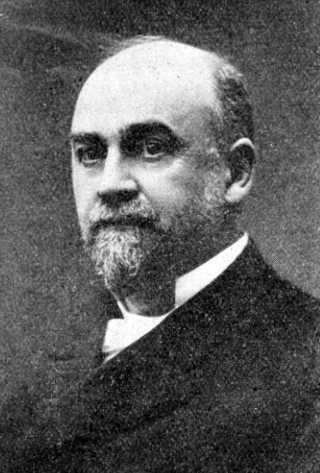
Eugene Russell Hendrix was a bishop of the Methodist Episcopal Church, South in the U.S., elected in 1886.
Armstead Milton Alexander was an American attorney and politician from Missouri who served as a member of the United States House of Representatives from 1883 to 1885.

Daniel Paul Rader was an American evangelist and college football player and coach. Influential in the Chicago area during the early 20th century, he was first nationwide radio preacher in the United States. Rader was senior pastor of the renowned Moody Church from 1915 to 1921 and was also the second president of the Christian and Missionary Alliance.

The Best Female College Basketball Player ESPY Award was presented annually between 1993 and 2001 to the female collegiate basketball player determined to be the best in the NCAA in the previous season. The award was discontinued in 2002 when it was absorbed into the overall Best Female College Athlete ESPY Award.
Howard–Payne Junior College was a women's college located in Fayette, Missouri. Affiliated with the Methodist Episcopal Church, South, it opened in 1859 and closed in 1927.
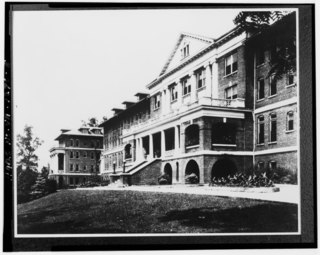
Sullins College was a Methodist junior college for women in Bristol, Virginia, United States. Founded about 1868 and named for David Sullins, a Methodist minister, it ceased operations after the class of 1976 graduated.
The following is a timeline of the history of Lexington, Kentucky, United States.

The Association for Women in Communications (AWC) is an American professional organization for women in the communications industry. It was formed as Theta Sigma Phi in 1909 at the University of Washington.
Jesse Lee Cuninggim (1870–unknown) was an American Methodist clergyman and university professor and administrator. After serving as Head of the Department of Religious Education at Southern Methodist University in Dallas, Texas, he served as the President of Scarritt College for Christian Workers, which he moved from Kansas City, Missouri to Nashville, Tennessee.
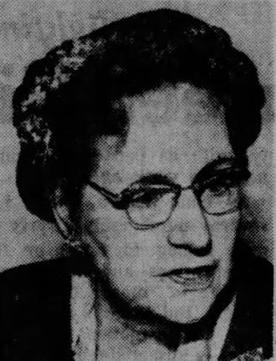
Annalee Stewart was one of the first ordained female ministers of the U.S. Methodist Church and was the first woman to be a guest chaplain for the U.S. House of Representatives. She was a peace activist and served as president of the Women's International League for Peace and Freedom (WILPF) between 1946 and 1950.

Julia A. Tevis was a pioneer educator of women, from Kentucky. After teaching for several years in Virginia, she founded the Science Hill Female Academy in Shelbyville and led the institution to gain a national reputation for excellence. Teaching her students math and science, rather than how to be accomplished seamstresses, Tevis prepared young women for colleges.
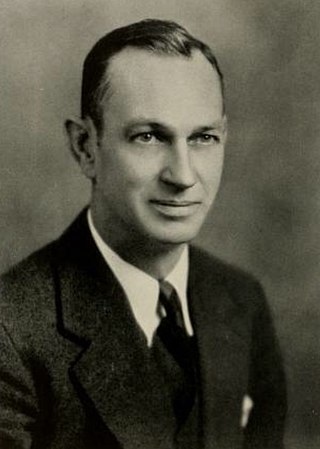
Raymond Rollins Sermon was an American college football, college basketball, college baseball, and track coach and college athletics administrator. He served as the head football coach at Central College—now known as Central Methodist University—in Fayette, Missouri in 1917 and Missouri School of Mines and Metallurgy—now known as Missouri University of Science and Technology—in Rolla, Missouri from 1918 to 1919, and Kirksville Osteopathy College—renamed from A.T. Still College of Osteopathy and Surgery in 1924 and now known as A.T. Still University—in Kirksville, Missouri from 1921 to 1924.

Lula Vashti Turley Murphy was an American educator and community leader, one of the founding members of Delta Sigma Theta, the historically black sorority.

Forest Hill Calvary Cemetery is a cemetery in Kansas City, Missouri.

Hallie Paxson Winsborough was an American church worker. As the first Secretary of Women's Work for the Presbyterian Church in the United States (PCUS), she worked for civil rights and interracial cooperation, especially in the American South. She was also a founding member of the Association of Southern Women for the Prevention of Lynching (AWSPL).

Marvin Campbell was a politician and businessman from Indiana. He served as a member of the Indiana Senate from 1883 to 1887. He was one of the founders and president of the Campbell Paper Box Company.

Clarence A. Clingenpeel was an American athlete and sports coach. He was best known for his time at Central College, where he played several sports and later coached from 1914 to 1917, and again from 1925 to 1941. Clingenpeel also coached football at Austin College for one year and for seven years he coached football and basketball at Kemper Military School. He was inducted into the NAIA Hall of Fame in 1958 and later into the Central Methodist Hall of Fame in 1983.















